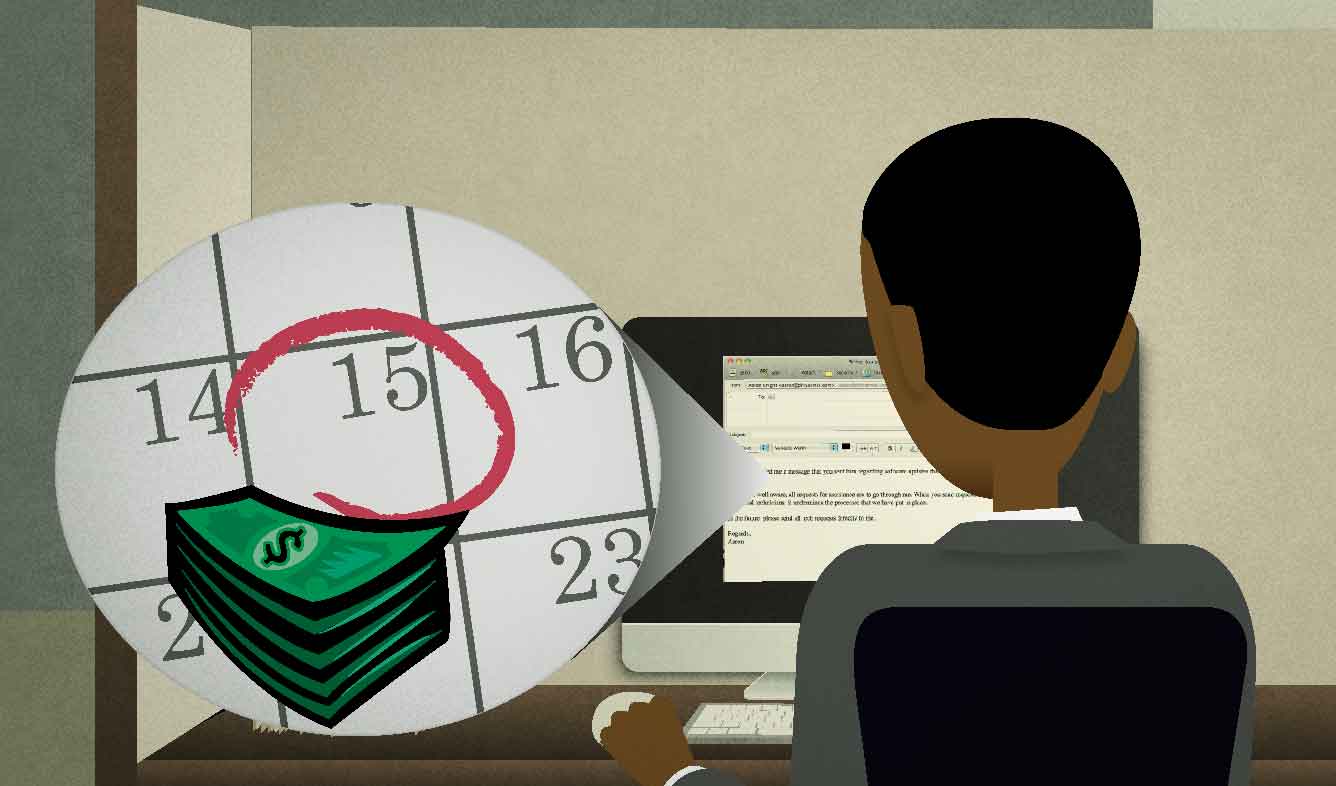“If payment is not received by January 15th, you will be charged a $150 penalty.”
You work in the management office of an apartment building. One of the tenants hasn't paid his rent yet for this month, and the payment is 10 days overdue. You're writing a letter to warn him to pay his rent. This is how you explain what will happen if he doesn't pay soon.
If payment is not received by January 15th, you will be charged a $150 penalty.
Want Video and Sound? Follow us on YouTube

if (something) is not (done), (something) will be (done)
In the situation above, the person writing the letter is explaining what consequences the tenant will face if he doesn't pay his rent by a certain date. This is a kind of threat. People can get really angry, frightened, or offended if they feel like they're being threatened in a direct way. For example, writing the sentence above this way would probably start an argument:
If you don't pay us by January 15th, we're going go charge you a $150 penalty.
This version is too direct for communicating with a customer or tenant. Instead, the person in the example explained the consequence of not paying in a more indirect way:
Here are some other examples:
If it isn't completed by the end of the month, someone is going to get fired.
If all the steps are not followed in the correct order, the results will be ruined.
charge (someone) a penalty
A "penalty" is money that you have to pay because you didn't follow a set of rules, or because you did something wrong. When a company "charges" you a penalty, it means that they make you pay it.
Here are some reasons that you might be charged a penalty:
- If you spend more money with your debit card than you actually have in your account, your bank will charge you a penalty.
- If you are late sending a payment (like in the example above), you will be charged a penalty.
- If you sign a two-year contract with a mobile phone company, and then want to change your service to another company after one year, they will charge you a penalty.
The word "penalty" isn't usually used for talking about money you're forced to pay by the police or by a judge. That's called a "fine".
(do something) by (a certain time)
You use the word "by" to indicate a deadline.
You would use "by" in this way:
We're presenting this on Monday morning, so remember to get Henry's approval by Friday afternoon.
"Before" is similar in meaning to "by", but "before" doesn't carry the same meaning of "deadline". Instead, it's used when you need to do things in a certain order:
Remember to get Henry's approval before you present it to the client.
This is something you would say if a coworker is going to make a proposal to a client, but she is supposed to ask Henry, who's the Director, for permission first.
receive (something)
To "receive" something basically means to get it from someone.
We received over a hundred submissions.
The word "receive" is pretty formal. It's used in official documents or in business communication. In normal conversation, "get" is more common:
We got over a hundred submissions.
"Receive" is often used in a pair with the word "give" - there's a famous saying "It's better to give than to receive."
